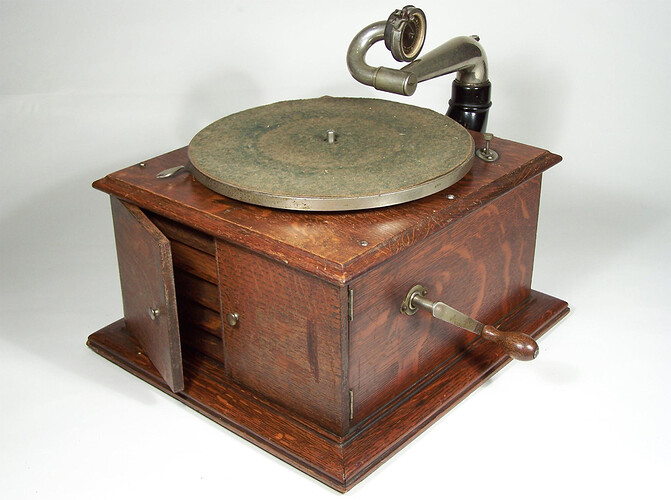That was the point of my post. Jitter has to be so pronounced, that there is a fault, for it to be audible.
Yes your right there, my bad what I meant was that the kernel on Linux has to be patched sometimes to allow for some usb interfaces on certain dacs to do DSD if the device isn’t fully compliant. Spockfish has done this on Ropieee for lots of users to allow naive DSD.
My position on snake oil is I don’t buy it unless it sounds better ![]()
I use snake oil on all my wires and cables. The oil applied to the outside of the wires and cables really helps the electrons to glide more easily thereby giving the music a better flow. Cobra oil is the best but rather costly since retrieving it is a very dangerous job.
Well. to modify John Arbuckle, “in audio, you sometimes get what you pay for.”
There are DACs at the very high end that successfully isolate power and then buffer and re-clock as well as an outboard converter can do. There also are DACs that sound worse, when compared to the DAC’s USB input, if one is using an outboard converter with problems of its own.
In order to solve Arbuckle back to “you get what you pay for,” (since in audio you do not often ‘get’ what you do not pay for), one has to use ears.
Many lower and midrange-priced DACs, even those that buffer and re-clock, may possibly be improved by a high-quality outboard converter. It is very difficult (and expensive) to truly isolate power and ensure a jitter-free stream.
I use a Berkeley Alpha USB feeding AES/EBU to a Yggadrisil LIM. The source is a NUC.
I got there with my ears, so admittedly, my conclusion is subjective. I can’t assert an absolute, that every DAC will be improved by something like the Berkeley Alpha, but neither can one assert that no recent DAC can be improved. I offer no negative conclusion about the Yggadrisil – it is an excellent, very musical, piece of kit, one of the best I have ever heard.
For me, jitter and power problems (present equipment excepted) are most easily heard in orchestral string passages and mass choral recordings. Such jitter/power problems prompt a “turn it down a little” urge. When, instead, the urge is to increase the volume to hear more details, I am happily listening to the music and not the sound.
Once again, all good USB DACs these days use isochronous USB transfer, so buffering and “re-clocking” are built-in. It’s not “very high end” anymore. Same goes for isolation. These problems have been successfully solved, no matter what high-end dealers say.
So the high end audio dealers, press and internet crowd will just make up another “problem” to be “solved”. Otherwise known as FUD. FUD is a feature, not a bug, of high end audio.
It’s actually a feature of high-end audio market. I turn to music to overcome FUD, not to feed it.
So you keep saying…yet real world experience says that’s just not the case.
My transport has the following measurements:
- Jitter 0.6 ps
- Noise 50 μV
Is that what’s meant by “real world”?
OMG! With measurements like that how can you even hear the music? ![]()
Yeah, not exactly high-end.
I don’t know what that has to do with DACs and how they handle electrical noise from computer systems on the USB input…
Funny that’s the first mention of using an old computer as a Roon endpoint. I’m not 100% sure but I think that when using the USB output of a computer for digital audio then using an up to date driver for the USB DAC will solve most, if not all, of the electrical noise issues. By the way, classic audiophile deflection - “yesterday’s boogeyman”. You almost got me/us. ![]()
On a related note: I never play shellacs anymore since the players have terrible speed control:
You implied that jitter is still an issue. A pico second, which is a measure of time, is 1/1,000,000,000,000 of a second. So 0.6 ps does not represent a timing issue.
You also implied that noise isolation is still an issue today. A micro volt is equal to one millionth of a volt. So, for a 3 V input signal, a 50 mV noise signal is not an issue either (SNR ~120 dB.)
These measurements are real world examples, and whilst very good, are by no means exceptional. My transport cost under £200. High-end is available to everyone, and it doesn’t need to cost the Earth!
If I bypassed my Raspberry Pi-based transport, with a desktop PC and USB, my DAC does an equally good job of isolating noise and distortion: 109 dB.
Oh, but it doesn’t require electricity! That’s the closest you can get to the real thing.
True but what if I want to listen to Jimi Hendrix, you know electric guitar? ![]()
You shouldn’t, just like all-analog fans who never listen to electronic music.
But Jimi Hendrix’s music, while using electricity to amplify the sound, was all analog. I think that you are confusing all acoustic with all analog. All acoustic is how the music is made and all analog is how the music is recorded. In addition, in the early days of recording there was all mechanical recording without the use of electricity. Once electricity was introduced into the recording chain all hell broke loose and audiophiles were born. ![]()
I’m just being sarcastic. Might get me banned at some point… Just like some people are opposed to digital for reasons like it being unnatural, why wouldn’t people be opposed to electricity for similar reasons? I imagine there were people who pushed back on that too, or even on music reproduction altogether. After all, classical music is the pinnacle of musical expression, right? ![]()
